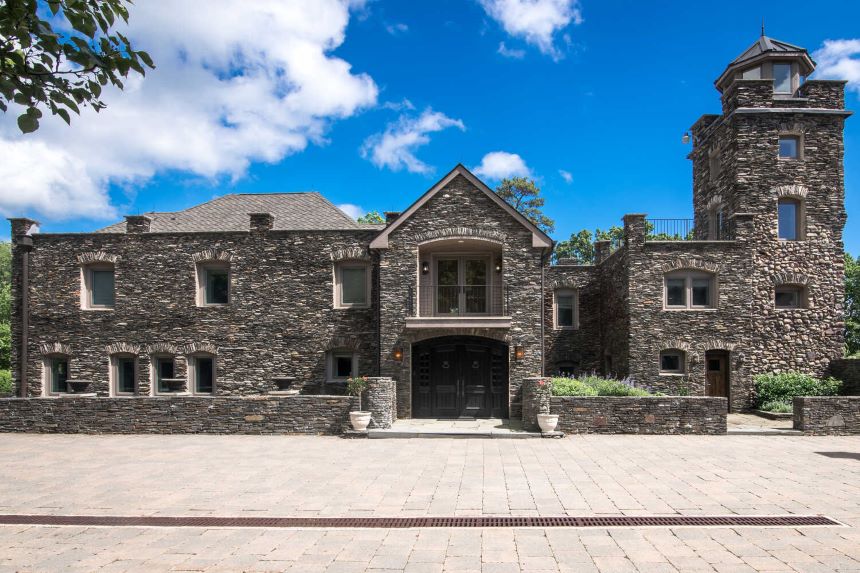As reported by NPR news- On Monday the Iranian state media reported that Iran President Ebrahim Raisi, the nation’s foreign minister, and other dignitaries had all been pronounced dead in a helicopter accident.

Following the news of Raisi’s passing, the Iranian government called an emergency conference, and Ali Khamenei, the country’s supreme leader, then appointed First Vice President Mohammad Mokhber as acting president. In addition, Khamenei declared that the nation would observe five days of mourning.
Due of the continuing Israel-Hamas conflict, which is still causing high regional tensions, Iran lost two of its most important diplomatic figures in the crash.
Along with the deaths of East Azerbaijan province governor Hossein Amirabdollahian, foreign minister Hossein Amirabdollahian, and other government officials on board the helicopter, Raisi’s passing was reported by state-run media in Iran on Monday.
The crash’s immediate cause was not disclosed by state-run media. Sadly, the group’s helicopter crashed in a cloudy, hilly region in the northwest of the nation, close to the border with Azerbaijan. Raisi had participated in a dam inauguration event beside Ilham Aliyev, the president of Azerbaijan.
The inclement weather made it more difficult for rescuers to locate the crashed chopper.
Born into a family of religious scholars in Mashhad, the second-biggest city in Iran, Raisi began attending a seminary at the age of fifteen. He was active in demonstrations against the Western-backed Shah of Iran, who was overthrown in the 1979 revolution that brought Ayatollah Ruhollah Khomeini’s theocratic government to power.
Previously holding the position as chief justice, the ultraconservative was elected president in 2021.
One year after taking office, he issued an executive order tightening regulations on women’s attire. This resulted in the detention of Mahsa Amini, a young Kurdish lady, because her headscarf did not completely cover her hair as required by the nation’s “hijab and chastity” statute. Human rights organisations claim that hundreds of people died as a result of the widespread riots that followed Amini’s death in detention. These rallies were viewed as one of the biggest dangers to the Islamic state since it was established during the 1979 revolution.
Amnesty International, a human rights organisation, has referred to the regime’s recent crackdown on women’s clothing standards as a “war on women.” This crackdown has occurred after the protests subsided.
For his role in the extrajudicial executions in 1988, Raisi was well-known.
It was not the first time Raisi has been charged with brutally suppressing dissent because to the violent suppression of the protests. Rights organisations claim that in 1988, while he was a rookie prosecutor, he served on “death committees” that issued execution orders for political prisoners.
Raisi was a member of the Tehran panel that human rights organisations claim gave the order to execute hundreds of the Islamic regime’s opponents: Amnesty International calculates that approximately 5,000 individuals were executed across the country.
According to Hadi Ghaemi, the director of the advocacy group the Centre for Human Rights in Iran (CHRI), located in New York, “Raisi is a pillar of a system that jails, tortures, and kills people for daring to criticise state policies,” Reuters was told.
While Raisi was a presidential candidate in 2016, a recording of a prominent priest discussing his involvement in the 1988 murders surfaced online. A year later, Raisi was defeated by less radical challenger Hassan Rouhani in the election.
The United States placed sanctions on Raisi in 2019 after he was named head of the court due to human rights breaches, particularly the executions that occurred in the 1980s.
Along with Khamenei’s own son Mojtaba, Raisi had been considered a possible successor to the top job as a protégé of the nation’s supreme leader.
The cause of the incident on Sunday remained unknown, although Iran expert Karim Sadjadpour of the Carnegie Endowment for International Peace stated on X that few people in “Iran’s conspiratorial political culture will believe Raisi’s death was accidental.”
The interaction between Israel and the U.S.
As reported by CNBC news – But even more significantly, Itayim stated, “Iran is not going to change course simply because of this,” with regard to both internal and foreign policy.
Nothing significant will change in terms of relations with the United States and probably Israel. There are deeper, more fundamental concerns at stake between these two nations, and those difficulties are probably here to stay.
Iran has long rejected recognising the state of Israel, denied official diplomatic ties with the United States, and is still subject to harsh Western and American sanctions. Throughout Joe Biden’s administration, there were numerous failed attempts to advance negotiations in an effort to salvage the Iranian nuclear deal.
Fears of a wider Middle East war have increased as a result of Israel and Iran exchanging drone and missile barrages during Israel’s conflict with the Palestinian militant organisation Hamas in the Gaza Strip.
Sanam Vakil, director of Chatham House’s Middle East and North Africa programme, said that Raisi’s passing “comes at an adverse moment for Iran,” but that the world can still anticipate continuity because the Iranian presidency is not actually where the state’s authority resides.
Although the president of Iran is theoretically second in power inside the state, he lacks the independence and flexibility of the president of many Western democracies. Vakil stated on Monday that “he works at the supreme leader of Iran’s command.”
She continued, “He also lacks independent foreign policymaking authority.” “Therefore, the real purpose of his death will be to find someone to take his place and step in to keep the system cohesive.”



